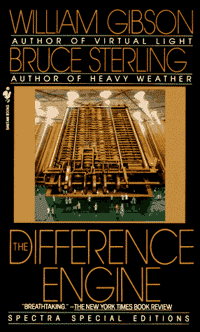Allana, thanks for laying out all these references like this. Until looking at it all in your chronology, I didn't really get the whole thread of the Modus, but you are right, the supposed mathematical dysfunction is recognizable.
It's Gödel's incompleteness theory.
This spells it out quite clearly:
And yet the execution of the so-called Modus Program demonstrated that any formal system must be both incomplete and unable to establish its own consistency. There is no finite mathematical way to express the property of 'truth.'
That's exactly Gödel's first incompleteness theorem.
You can think of it as the formalized logical equivalent of saying:
"This sentence is false."
The falsity of that sentence is not provable by the logic of the language's meaning. If it is indeed false then actually the sentence is true, but if it is true it cannot be false. There is simply no possible way to resolve the falsehood of that sentence using language logic.
The incompleteness theorem does a similar (though not paradoxical) thing with statements of provability. It basically says:
"Obviously true logical statement X is not provable within Theory Y"
I don't have the math here solid enough myself to get any more descriptive, but this is always true of any set of mathematical proofs assembled into a theoretic framework. There are an infinite number of obviously true logical statements within that Framework that cannot be proved by reference to proofs within that framework. It's not that proofs haven't been found, it's that they cannot be found. They are impossible. It's like impenetrable logical singularities littering the knowableness of everything.
Kurt Gödel published his incompleteness theorem in 1929. It looks like Gibson and Sterling have cast Ada Byron as the Kurt Gödel of 1855. Maybe the disorder of the Grand Napoleon is an analog for the disruption caused by the dawning awareness that human beings can't comprehensively prove the existence of anything. 1932 is known as the Miracle Year in physics as in that one year most of the basic framework of Quantum Physics fell out of the heads of a circle of physicists and mathematicians surrounding Niels Bohr. These fellows were aware of Kurt Gödel and his work. It's as though the introduction of the incontrovertible evidence of the unproveableness lurking inside all of our frameworks of knowledge set off a cascade of insight that undid the certainty underpinning all of human thought.
I need to give this more thought. I'm sure the authors are going for something with this in the context of physical computation.



